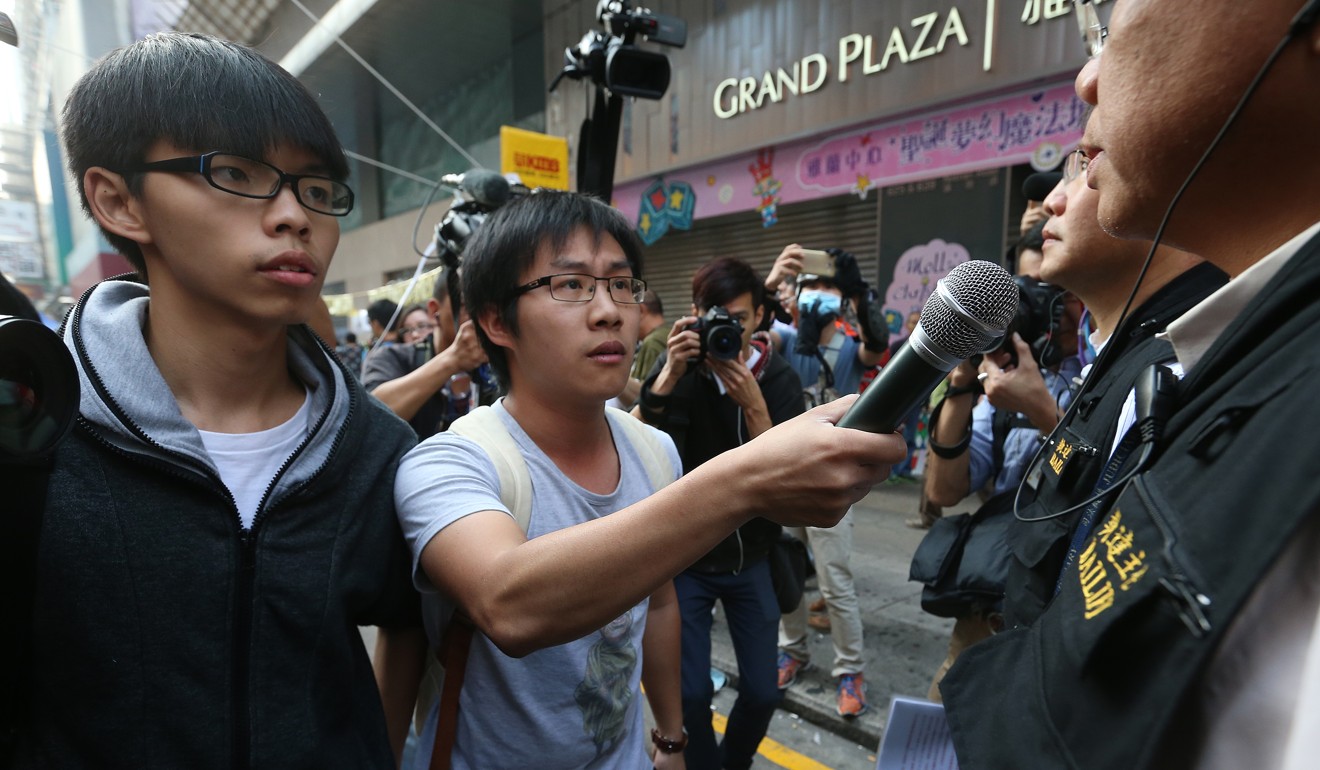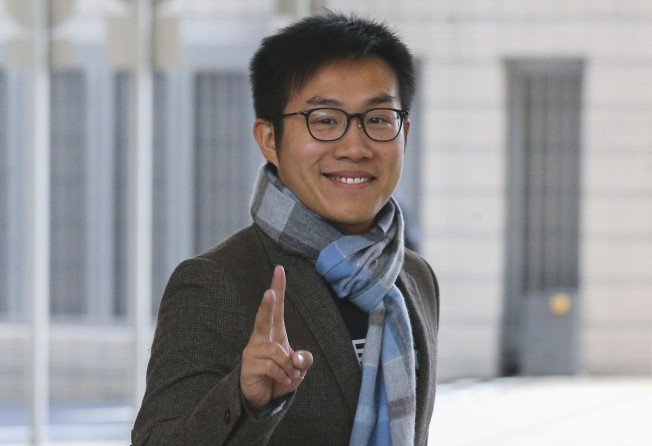
Raphael Wong did not intend to obstruct justice during Occupy protest, appellate court hears
Defence lawyer argues the democracy activist’s decision to stay at the site was not enough to find his client guilty of contempt

Merely refusing to leave an Occupy protest site was an insufficient reason to find a Hong Kong activist guilty of contempt of court, his lawyer told an appellate court on Monday, as the judiciary continued to work through a backlog of cases stemming from the 79-day pro-democracy protest.
What a lower court failed to prove, Martin Lee Chu-ming SC said, was that Raphael Wong Ho-ming specifically intended to obstruct justice when it convicted him.
The High Court ruled in October last year that Wong, vice-chairman of League of Social Democrats political party, and 19 other people, including Nobel Peace Prize nominee Joshua Wong Chi-fung, were in contempt of court after they were ordered to vacate a protest site at Nathan Road in Mong Kok on November 26, 2014.
Raphael Wong was sentenced to four months in jail in January following a three-month trial, while Joshua Wong, who pleaded guilty, was jailed for three months. Others were given fines and suspended sentences.

Lee argued on Monday that his client’s intent during the time of the offence was crucial to whether Raphael Wong, who is currently serving his sentence, was guilty.
He said Wong would have to be thinking, “‘I am doing this thing because I want to obstruct or interfere with the administration of justice by remaining there’,” for him to have committed contempt of court.
The defence counsel said the lower court judge, Mr Justice Andrew Chan Hing-wai, had disregarded evidence favourable to his client during the trial.
Bailiffs testified during the original trial that Wong had treated them with respect and courtesy when he asked them questions at the protest site as they served the order to vacate. Lee argued that Wong had only wanted to make sure if they were doing their jobs properly – not obstruct justice, Lee said. However, Chan in his ruling said Wong had ridiculed the court officers.
Lee called the circumstances of Wong’s case “unusual” because of the massive size of the demonstration – and urged the appellate court to approach this case as a “rare” incident.
Mr Justice Andrew Cheung Kui-nung, the chief judge, asked what difference Lee’s argument would make “in the real world”, when almost “the whole of Hong Kong” already knew there was a clearance there that day.
The judges said they would provide their decision on a later day.